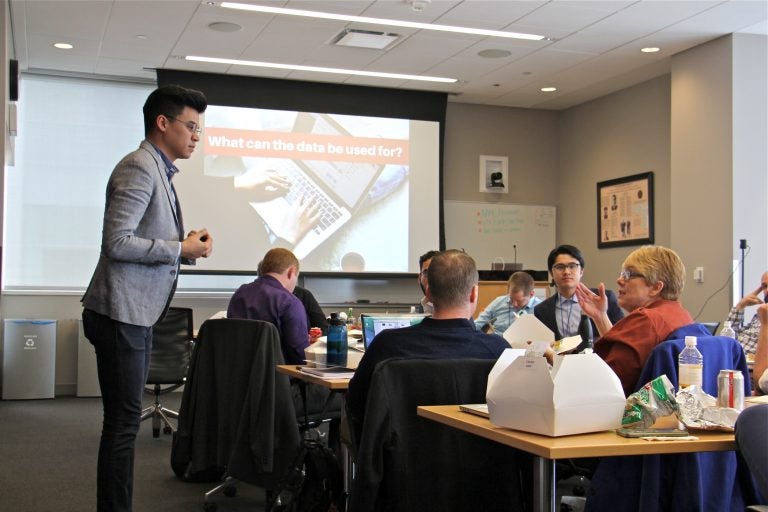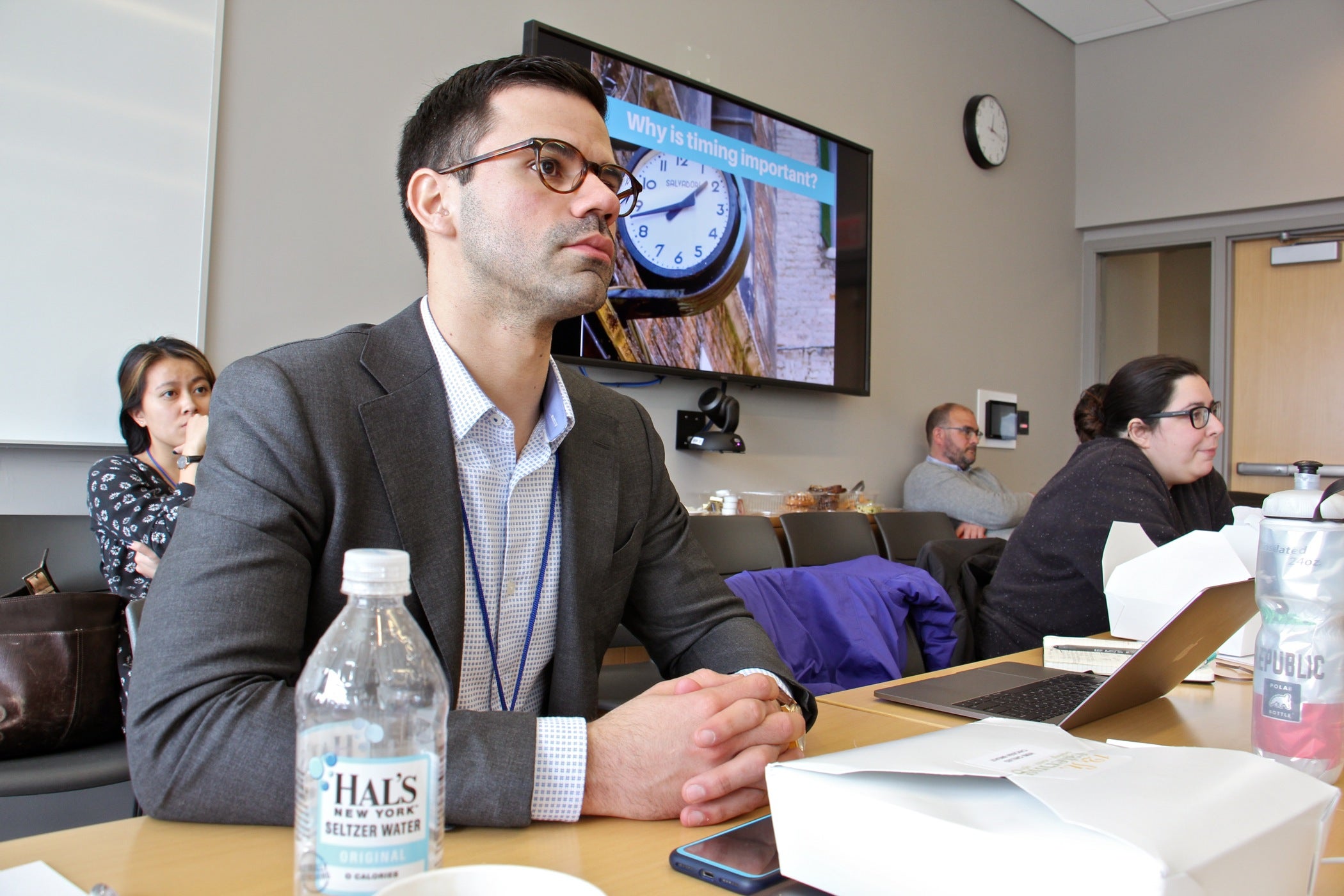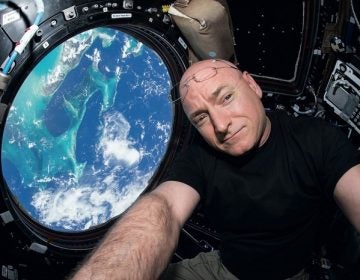Scientists running for office learn to present more than ‘just the facts’
More scientists are interested in getting into politics. As with any kind of race, sharpening skills can be key to good performance.

Martin Diego Garcia of 314 Action teaches a room full of scientists about using data in political campaigns. The class was part of a two-day training session put on by 314 Action. (Emma Lee/WHYY)
Physicist Andrew Zwicker first ran for Congress in 2014. He got a lot of his friends with doctorates to help him with his campaign, but there was a problem.
“We were just making it up,” he said. “We did what any good group of scientists and engineers would do, which is we Googled everything — how to run for Congress.”
He did well, but he didn’t win.
One year later, Zwicker ran for a seat in the New Jersey Assembly. But this time, he had political advisers and an expert on computer models to work on voter turnout. He won and now represents the 16th District in the central part of the state.
An advocacy group hopes other scientists won’t have to learn by trial and error. The group 314 Action endorses scientist candidates and helps them run for office — since 2017, it has trained more than 1,000 of them.
Its most recent workshop was in Philadelphia, where several of the 40 scientists who attended said they are interested in politics now because they’re no longer satisfied with their local or federal representatives.
The scientists said issues such as climate change, the environment, and medical research funding are not being addressed well by the current crop of politicians.
But they didn’t know how to get into politics themselves. The training by 314 Action featured the basics of fundraising and campaigning, and it let them join a network of like-minded scientists around the country.
Workshops like these are not new. Similar groups train progressive candidates, women, LGBTQ candidates, and military veterans. Zwicker said 314 Action is part of a trend — people who have traditionally not been represented in government are becoming disillusioned by politics and want to get involved.
“It’s really important that these type of training classes are coming together and, ideally, inspiring people from all walks of life to run and make a difference,” he said.
Over the course of two days, the scientists attending the Philadelphia workshop learned how to write a campaign plan, how much to spend on advertising, and how to pivot when they don’t want to answer questions from reporters.
And they practiced how to call people to ask for money, which may not come naturally.
“Asking for money feels bad,” said one participant.
“So is losing,” replied 314 Action founder Shaughnessy Naughton, a chemist and former congressional candidate.
Nothing can replace calling constituents and seeking funds for a campaign, said trainer and political consultant Joe Fuld.
“Somebody will come to you and tell you that there is a solution other than call time,” Fuld said. “They are wrong. Do not believe them.”
“So true,” said Adrian Rivera-Reyes, a cancer biologist and one of more than 20 people running for an at-large City Council seat in Philadelphia’s May 21 Democratic primary.

Rivera-Reyes said training like this is helpful, especially for people like him: scientists who are usually not part of the political scene. He came from a working-class family in Puerto Rico, spent years studying cancer and was not a recognized name in local politics at first.
“We need more scientists. We cannot have a government that’s solely made up of career politicians, lawyers, and businesspeople,” he said.
Rivera-Reyes has a background in labor organizing, so he already knows how to get a message out there.
Former congressional candidate Molly Sheehan said that’s an area where many scientists, including herself, could use help.
“We’re very much socialized to give just the facts and be very dry in our communications, and that’s great in [the] scientific community,” Sheehan said.
But that might not be so great when scientists talk to voters, so the workshop included tips on discussing evidence-based policy while also engaging on a personal level.
314 Action has gotten results out of workshops like this one.
At the start of this year, 11 scientists — eight Democrats and three Republicans — were sworn into Congress. 314 Action endorsed and supported all the Democrats.
Naughton, 314 Action’s founder, said in an interview last year that none of the thousands of scientists the group heard from are interested in running as Republicans. That, she said, is a reaction to what she called the Trump administration’s lack of understanding of science.
WHYY is your source for fact-based, in-depth journalism and information. As a nonprofit organization, we rely on financial support from readers like you. Please give today.





